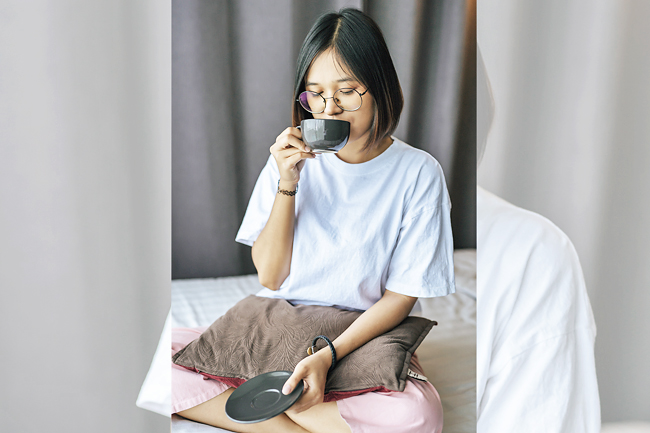AFP – Got an itchy or runny nose? Sneezing fits? Shortness of breath?
These might be signs that seasonal allergic rhinitis is back.
Caused by dust mites, animal dander, or pollen, this condition can be treated with medication, but there are also gentler ways to alleviate the symptoms.
While allergic rhinitis is a benign medical condition, it can still be quite debilitating.
While medications such as antihistamines and corticosteroids are available to prevent or alleviate the symptoms of allergic rhinitis, some simple actions can help soothe symptoms on a daily basis.
PREVENTATIVE STEPS
Some simple tricks can help prevent or minimise the effects of allergic rhinitis, both inside and outside the home.
It is recommended to air your home for at least 10 minutes a day all year round.


The French Health Ministry advises to preferably do this before sunrise and after sunset.
It’s also advisable to rinse and brush your hair in the evening to get rid of pollen and other allergens that may have built up throughout the day.
As pollen is already a major source of allergies, it’s best not to combine it with other allergens, like tobacco smoke, household cleaning products and animal hair, which should be avoided as much as possible.
The aim is to keep pollen outside, which is why you shouldn’t air your home in the middle of the day, or even dry your laundry outside.
The pollen season should not be a reason for allergy sufferers to lock themselves in their homes.
However, care should be taken to avoid overexposure to pollen when going out or engaging in outdoor activities.
This means keeping windows closed when travelling by car, and avoiding – or reducing – outdoor physical and sporting activities, or tending the garden, for example.
Since the COVID-19 pandemic, face masks have become much more commonplace in everyday life, and these can be helpful in reducing the risk of allergic rhinitis.
NATURAL REMEDIES
Despite all the precautions you may take, symptoms can still arise: a runny nose, itching and tingling, and sneezing.
But don’t panic: there are traditional remedies and other natural methods that won’t put an end to your hay fever, but which can help reduce the symptoms.
It may sound logical, but it’s important to blow your nose regularly and to clean out your nose with saline solution, which can also be used for eye irritations.
Plus, inhaling certain essential oils can help relieve some symptoms of seasonal rhinitis, with lavender, eucalyptus and peppermint essential oils particularly recommended – except during pregnancy.
Other age-old remedies include herbal teas, which can be beneficial in relieving hay fever symptoms.
Nettle is among the plants that act as an antihistamine, while peppermint has analgesic and anaesthetic effects.
Making infusions from these two ingredients not only relieves runny noses and sneezing, but also itching.
In addition, acupuncture can prove effective during the hay fever season.
On the other hand, it’s not advisable to indulge in spicy foods, which tend to aggravate allergies.





